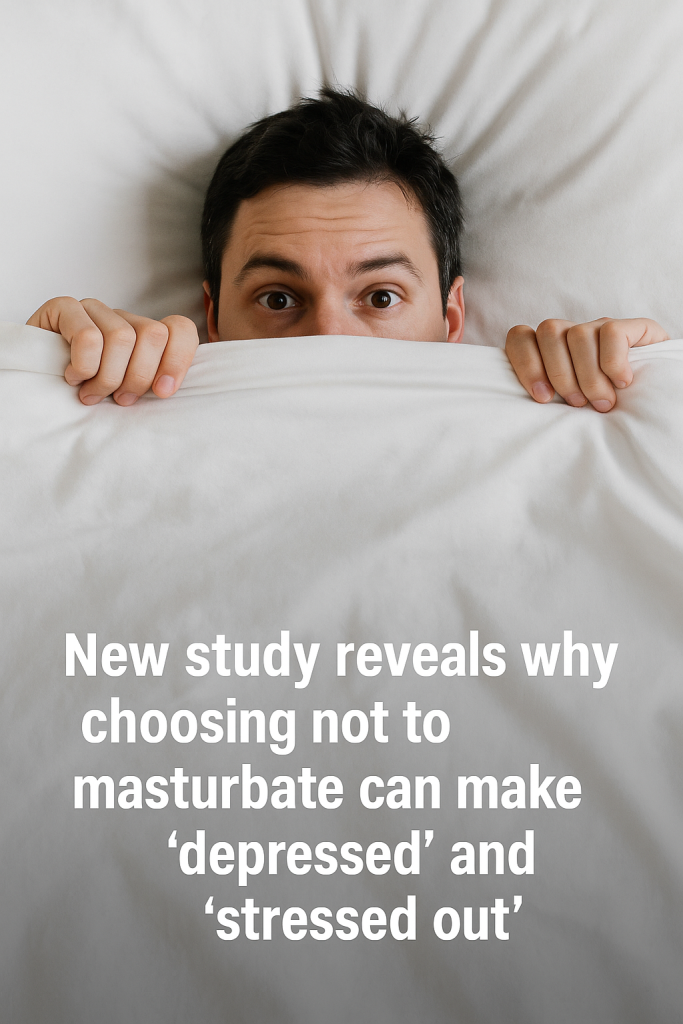A recent study has turned heads by shedding light on the unexpected psychological effects of choosing to abstain from masturbation. While discussions around sexual health often emphasize the physical benefits and social perspectives, this new research uncovers a significant connection between avoiding masturbation and increased feelings of depression and stress.
The study, conducted by a team of psychologists and neuroscientists in early 2024, sought to explore how forced or self-imposed abstinence from masturbation impacts mental well-being over time. The researchers enrolled over 1,000 adult participants who were asked to refrain from masturbating for a period ranging from two weeks to a month. The participants’ psychological states were regularly examined through validated anxiety and depression scales, as well as hormonal level assessments.
Findings revealed that individuals who chose to abstain for their personal reasons reported a notably higher incidence of depressive symptoms and stress markers compared to a control group with no restrictions. Specifically, the abstinent group showed increased levels of cortisol, a hormone linked to stress response, alongside lower self-reported mood scores and heightened irritability.
Interestingly, the research highlights masturbation as a natural stress-relief mechanism. The act triggers the release of endorphins and oxytocin—chemicals known to elevate mood and reduce pain and anxiety. When this outlet is removed, it appears the body’s ability to regulate stress is affected, potentially leading to negative emotional states.
Lead researcher Dr. Emily Harper explained, “Masturbation is often stigmatized, but our findings suggest it serves an important psychological function. Forcing oneself to abstain from it, especially when the individual does not have intrinsic motivation to do so, can paradoxically worsen mental health outcomes.”
However, Dr. Harper cautions that this does not imply masturbation is a cure-all or that abstinence is harmful in every context. The psychological impact seems to depend heavily on personal attitudes and whether the abstinence is imposed or a voluntary lifestyle choice.
These findings come at a time when conversations about sexual health and mental well-being are increasingly intersecting. Social media platforms have seen trending discussions around “no-fap” challenges and abstinence movements that promote extended periods without masturbation, often for spiritual or self-control reasons. This new scientific evidence suggests participants should be mindful of their mental health during such practices.
Experts recommend that individuals evaluate their motivations and emotional state if considering abstinence from masturbation. For some, it might yield benefits such as increased focus or better sexual sensitivity, but for others, it may inadvertently raise stress and depressive symptoms.
Ultimately, this study encourages a more nuanced view of masturbation’s role in mental health, emphasizing balance and self-awareness. As Dr. Harper concludes, “Understanding our own bodies and emotional needs is key to maintaining psychological wellness. Masturbation can be part of a healthy lifestyle unless the struggle to abstain causes undue distress.”
With sexual health research continually evolving, this study adds valuable insight into how complex and personalized human sexuality truly is—impacting not only physical aspects but emotional resilience as well.



